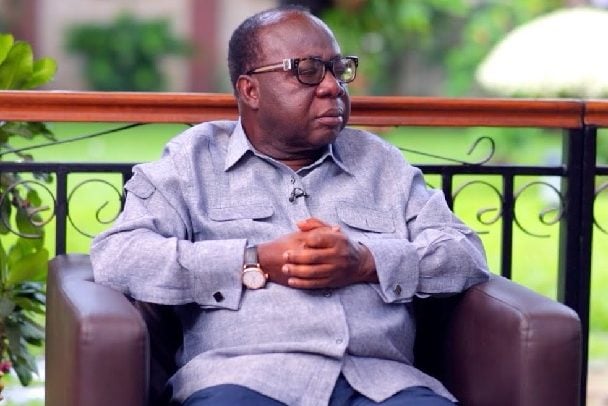The controversy surrounding Ghana’s National Cathedral project continues to spark debate, with former New Patriotic Party (NPP) Chairman Freddie Blay dismissing public outcry as “petty.” Blay argues that the project’s long-term value as a national asset outweighs current criticisms, predicting future governments will recognize its importance and ensure its completion. He acknowledges the political undertones of the opposition, asserting that much of the criticism stems from partisan maneuvering rather than genuine concern for national interests. Blay draws parallels with other national landmarks, like the Jubilee House and the Tema Motorway extension, which initially faced public resistance but ultimately proved their worth. He maintains that the Cathedral, despite current controversy, will similarly vindicate itself over time.
Central to Blay’s defense is the belief that the Cathedral’s significance transcends its immediate monetary cost. He points to the unifying potential of such structures, citing examples from other countries where national cathedrals and mosques serve as focal points of national identity and even generate revenue through tourism and related activities. He contends that while the current expenditure may seem substantial, the long-term benefits, both tangible and intangible, will ultimately justify the investment. To bolster his argument, Blay uses a biblical analogy, comparing the Cathedral’s construction to the anointing of Jesus’ feet with expensive oil. He suggests that just as some questioned the extravagance of that act, critics now fail to grasp the deeper significance of the Cathedral project, which he believes will ultimately serve a higher purpose. He emphasizes the role of leadership in making difficult decisions that may not be immediately understood but will be appreciated in retrospect.
Addressing the counter-argument that funds for the Cathedral could be better allocated to pressing needs like schools and hospitals, Blay reiterates his belief in the project’s long-term value. He maintains that while social services are undoubtedly crucial, investing in national symbols and cultural landmarks is equally important for national development. He suggests that a nation’s progress cannot be solely measured by its investment in social infrastructure but also by its commitment to cultural and spiritual enrichment. Blay’s argument hinges on the idea that the Cathedral will not only serve as a place of worship but also as a symbol of national unity and a testament to Ghana’s cultural heritage.
Despite his staunch defense of the project, Blay acknowledges the political fallout the Cathedral controversy has caused the NPP. He concedes that it may have contributed to the party’s recent electoral setbacks, admitting that the issue was likely weaponized against them by political opponents. However, he downplays the economic impact of the project, asserting that it did not significantly burden the national economy. This admission suggests a nuanced understanding of the project’s complexities, recognizing its political liabilities while maintaining its ultimate value to the nation.
Blay’s perspective underscores the complex interplay of religion, politics, and national identity in Ghana. The National Cathedral project, envisioned as a symbol of national unity and spiritual aspiration, has become a lightning rod for criticism, raising questions about resource allocation, government priorities, and the separation of church and state. Blay’s unwavering support for the project, despite its controversial nature, reflects a deep-seated belief in its symbolic importance and long-term benefits for the nation. He frames the Cathedral not just as a religious edifice but as a national monument, a testament to Ghana’s faith and a unifying symbol for its diverse population.
Ultimately, Blay’s defense of the National Cathedral rests on a vision of long-term national development that encompasses not only material progress but also cultural and spiritual enrichment. He believes that investments in national symbols, while perhaps controversial in the present, can yield significant returns in the future, fostering national identity, promoting tourism, and leaving a lasting legacy for generations to come. While acknowledging the project’s political baggage, Blay remains convinced that the National Cathedral will eventually transcend the current controversy and stand as a proud symbol of Ghana’s aspirations. His perspective invites a broader discussion about the role of national symbols in nation-building and the complex considerations that inform public spending priorities.














